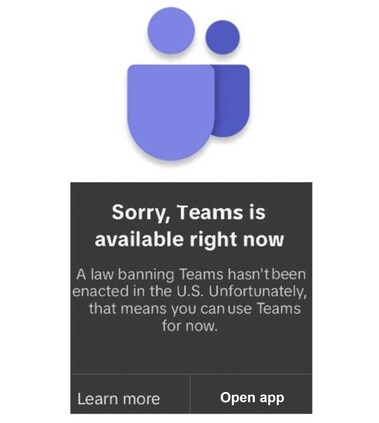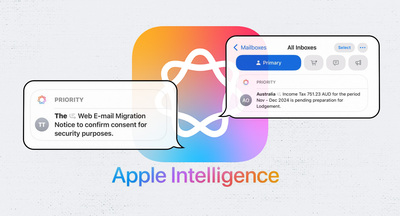
@rf Есть кто в Новосибе с роутером и IPv6? Мне бы туннель прокинуть, а то нам в глубинке IPv6 до сих пор не дают, а до Москвы огромный пинг :)
#llm #медицина #? @rf @ru
https://huggingface.co/spaces/openlifescienceai/open_medical_llm_leaderboard
Где скачать jiviai medX? Официальный NewMes чёт тоже куда-то пропал, и автор вообще хз кто, но нашёлся зато https://huggingface.co/mradermacher/NewMes-v15-GGUF
Ну и не хватает сравнения с более свежими закрытыми моделями :[
#будущее @rf @ru
Обнаружена wiki про enshittification и связанные явления: https://wiki.rossmanngroup.com/wiki/Mission_statement
Вот про Bambu например аж пять статей: https://wiki.rossmanngroup.com/wiki/Category:Bambu_Lab
#фото #hugin @rf @ru
В этот раз выключил автофокус, выключил автоэкспозицию, задрочился с hugin, но всё равно забор распидорасило т.к. там проходил в это время пешеход; держите дождец: https://tinystash.undef.im/il/5brSchJUgcMpJEWZuLe7phv9PcqBfZVPHrXENaarouiiBMf3goSxgWwxa8L4q72nK2CQdehL4q8v6WJyvc8r4aK8.jpg
#usa #healthcare #medicine #capitalism
The U.S. healthcare system does not align with the principles of capitalism, especially when examined through the lens of the core features that define a capitalist economy. According to the general understanding of capitalism, key components include capital accumulation, competitive markets, price systems, private property, the recognition of property rights, voluntary exchange, and wage labor. While these features are commonly observed in other sectors of the U.S. economy, the healthcare system is an outlier in many respects, failing to fully embody several of these fundamental characteristics.
One major shortcoming of the U.S. healthcare system is the absence of truly competitive markets. In a typical capitalist system, competition is supposed to drive innovation, improve efficiency, and lower prices. However, the U.S. healthcare market is highly fragmented and dominated by large monopolistic or oligopolistic corporations, including pharmaceutical companies, insurance providers, and hospital chains. This concentration of market power reduces competition, limits consumer choice, and drives up costs. For example, in many areas of the country, a small number of insurance companies control the majority of the market, which reduces the ability of consumers to shop around for better coverage or prices. Additionally, healthcare providers often have limited incentive to compete on price due to a lack of transparency in medical costs.
Another capitalist feature notably absent in U.S. healthcare is the efficient use of price systems. In a typical market economy, prices reflect the balance of supply and demand, helping consumers make informed choices about how to allocate their resources. However, the price system in U.S. healthcare is deeply distorted. Many medical procedures, medications, and treatments are priced without clear transparency, and patients are often unaware of the costs they will face until after receiving care. For example, the price of a simple hospital visit or a routine surgery can vary significantly depending on the hospital, geographic location, and even the patient’s insurance plan. This opacity in pricing makes it impossible for consumers to shop for the best value, a fundamental feature of a capitalist economy.
Furthermore, the principle of voluntary exchange is undermined in the U.S. healthcare system. In capitalism, voluntary exchange refers to the idea that both parties in a transaction agree to the terms freely and with full knowledge of the consequences. In healthcare, however, many individuals are compelled to seek medical care in emergency situations or because they are required by law to purchase health insurance under certain circumstances (such as through employer mandates or government programs). Additionally, many people are forced to accept treatments and procedures without understanding or consenting to their full costs. The power dynamics in healthcare transactions, where patients often have limited options and urgent needs, hinder the free exchange of services that is supposed to characterize a capitalist system.
A direct consequence of these deficiencies in capitalism is the exorbitant cost of medical care in the U.S. The high prices for medical services, prescription drugs, and insurance premiums make healthcare unaffordable for a significant portion of the population. For instance, the U.S. spends more on healthcare than any other nation, yet it ranks poorly in terms of outcomes such as life expectancy and infant mortality. Many individuals struggle to pay for necessary treatments, and healthcare-related expenses are one of the leading causes of personal bankruptcy in the country.
In stark contrast, people in other countries—such as Canada or Mexico—can often access medical care at a fraction of the cost. In Canada, healthcare is primarily publicly funded and provides most medical services at no direct cost to the patient at the point of care. As a result, Canadian citizens typically pay far lower rates for healthcare services compared to their American counterparts. In Mexico, private medical care is available at a fraction of U.S. prices. For example, a dental procedure in Mexico may cost one-tenth of the price in the U.S., and many individuals from the U.S. travel abroad to receive cheaper healthcare services. These examples highlight how the U.S. healthcare system deviates from capitalist principles, particularly in terms of price transparency, market competition, and the basic functioning of voluntary exchange.
#фото @rf @ru
Рубрика "hugin не обосрался, а автофокус обосрался": пасмурный день после дождика, горно-городской пейзаж: https://tinystash.undef.im/il/4U4xpKbSdpGCtibQNVH4edosMZchBq365sULYYNYv5xk2UhTwLJVqtV5rLf7aDV1sj9KxKSjQs98UZMyCr2tHQyQ.jpg
Something I find interesting is that when looking at any language designed before ~1985 that was designed to be portable to anything other than Unix systems and IBM PCs, it really reveals a richness in filesystems that you don't see today.
For example Common Lisp has provisions for file versioning where writing a file can modify the current version or create a new version, which you don't really see now because even with filesystems with snapshotting they don't support applications choosing when to snapshot something (or even snapshotting parts of a disk, other than things explicitly subvolumed), for backwards compatibility with the normal Unix filesystem APIs
Это ГЕНИАЛЬНО
https://getfullyear.com/
У них удалось одновременно высмеять и SaaS, и современный веб, и копирайты
@rf @ru
![]() Прекрасно. Кто-то взломал "облачные" робопылесосы и гонял их за питомцами, вещая из бортовых динамиков расистские оскорбления.
Прекрасно. Кто-то взломал "облачные" робопылесосы и гонял их за питомцами, вещая из бортовых динамиков расистские оскорбления.
Отличная реклама #Valetudo[1] и очередное напоминание о том, что нет никаких облаков, только чужие компьютеры.
https://www.theverge.com/2024/10/12/24268508/hacked-ecovacs-deebot-x2-racial-slurs-chase-pets
- languages
- native russian, C1 english, A2 serbian
- github, wikipedia, printables, etc
- L29Ah
- monero
- 89z6iYmPEadDAE9EuYkyArG2r71UwCk5LjKaUr19FDAtM3kf7YaUBt5W6HzWvxeAnQYoNWXscMWdTM88UmSpJNSbQMRq5pk
- bitcoin
- bc1q8elf3lwxzy4m3kpur7xj42tvkta82qgyk35309
cyberjunkie, transhumanist, code monkey, FOSS fanatic, embedded systems engineer, 3D printing zealot, ancap, garbage tinkerer, philosophical zombie








